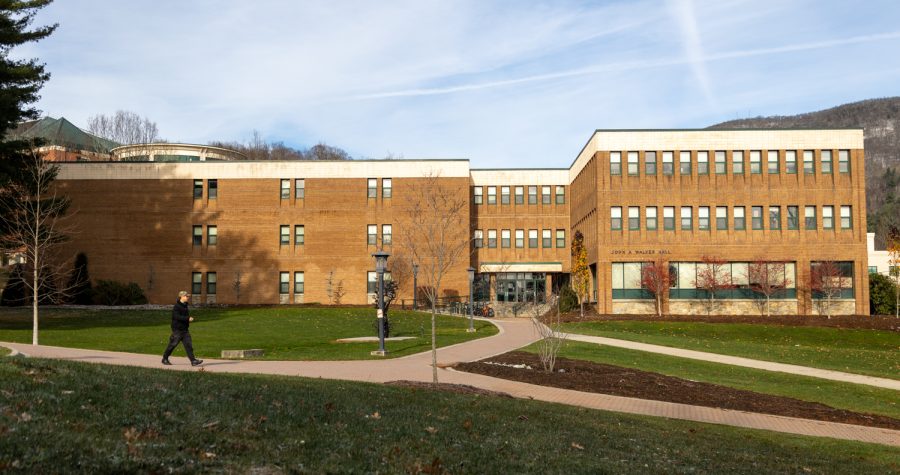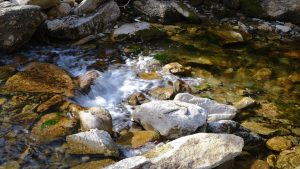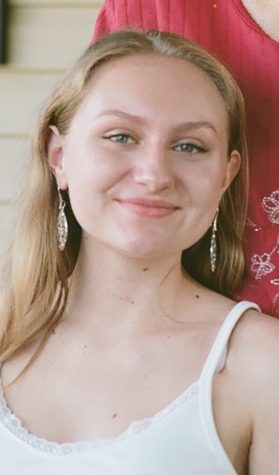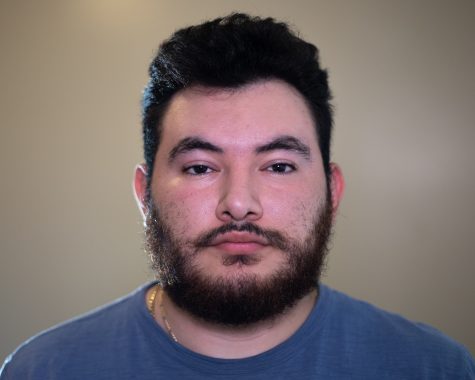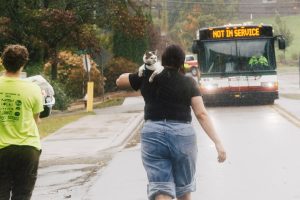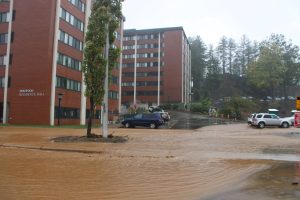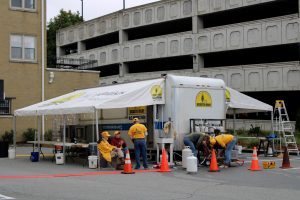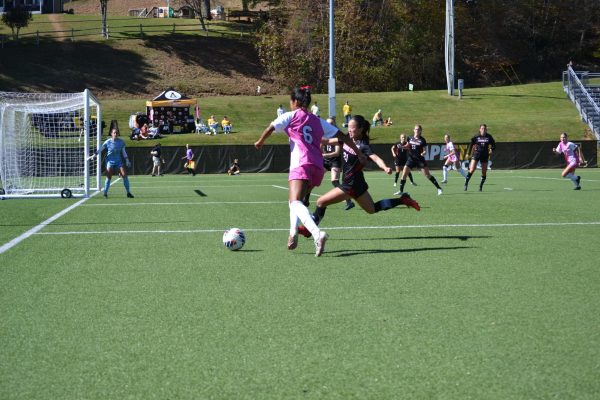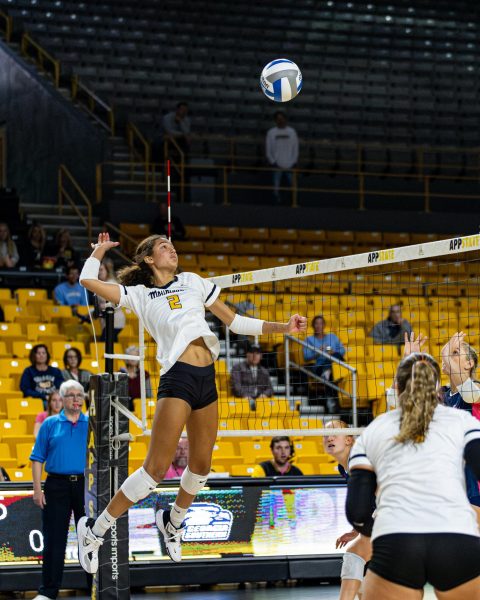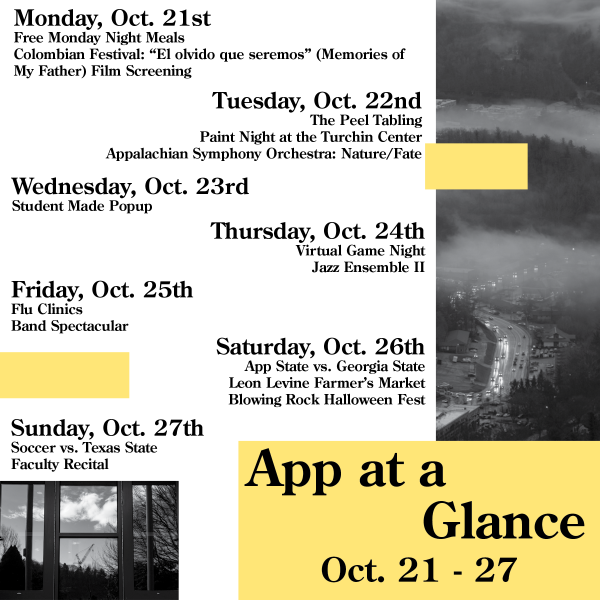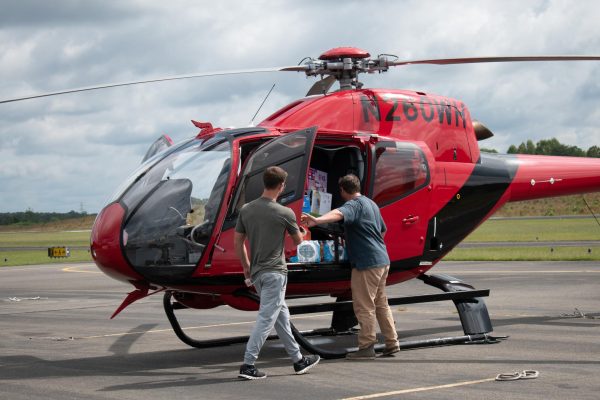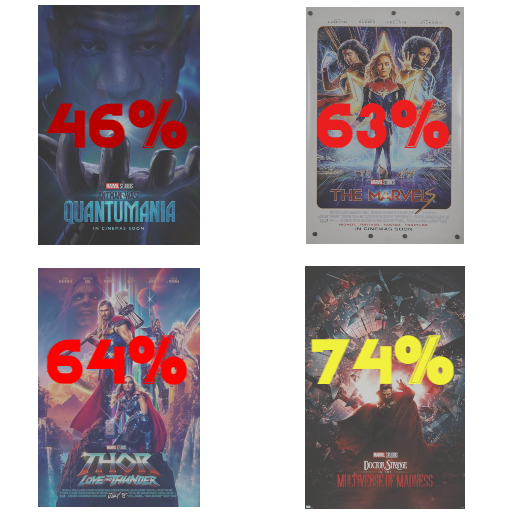Climate Response-Ability: climate progress one professor at a time
Walker Hall the morning after the first weekend snowfall of 2022 in Boone, North Carolina. Nov. 14, 2022.
December 2, 2022
App State’s course Climate and Climate Response-Ability is now open for spring registration and was recently selected as the proposed topic for the new 2024-29 quality enhancement plan.
The course is a campus-wide collaboration in which several faculty members with different concentrations apply their specific knowledge to make progress toward climate change efforts.
Laura England, the resident practitioner of sustainable development, said the quality enhancement plan calls for proposals from faculty to select a topic related to “student learning or student success” as part of the requirements for the university’s accreditation.
“There’s this tremendous interest on our campus among students and faculty in trying to, you know, each of us trying to figure out how to best contribute to this huge collective puzzle of solving climate change,” England said.
England spearheaded the course at the university, making it available to students for the first time in the spring of 2021.
England said the university accepted the course after a grant proposal written by herself and a group of faculty members was accepted in 2020. However, she said the program’s background dates back a decade.
England said the program’s initial stage began as conversations among faculty members wanting to provide students with “meaningful and empowering” climate literacy education.
“We felt climate literacy is essential for this generation and all the ones that will follow it,” England said. “So being able to grow our capacity as a university to provide that is a major need in higher education.”
The course offers an asynchronous learning environment for students comprised of video modules developed by the University of California system and those at App State.
England said when initially planning the course, the California modules were a “good launching pad for being able to offer climate solutions courses on our campus.”
She also said the modules later developed by App State would “supplement” those out of California and serve as a means to “connect our region in ways that would be meaningful to students.”
According to England, the program is currently in its “final stages,” as it is finalizing two new modules focusing on food system transformations to mitigate climate change and nature-based solutions. These modules will be available in the spring of 2023.
Lynette Holman, associate professor of the communication department, is one of the professors set to teach the course this upcoming spring. Holman is just one of the professors involved in the collaboration, which offers 13 sections of the course across different departments.
She said each professor who teaches the course brings their expertise to the table and enables focused solutions to the more significant climate change issues through their specialties.
Holman, who researches climate communication, said she would discuss topics such as the effects of video narratives, transportation theory and how the theory affects voting intentions.
“By offering the solutions as part of the story, and this is kind of where I come in, that can engage people to feel like they have agency and can make a change and be part of the change,” Holman said.
The program is currently not cataloged on the bulletin and, therefore, not part of the different programs of study offered to students, which England believes affects enrollment.
England said she soon hopes not only to catalog the course but submit it to the general education program, and if accepted, then “getting enrollment in the sections that are offered won’t be an issue.”
One goal England has for the program outside of education is to “empower students.” England said she believes “it is not too late” and hopes one message students will take away from the course is that the solutions “don’t need further innovation” but instead need “broad implementation.”
“There is a lot that we can do, and I hope that students will, by the end of the course, have a clearer sense of where they might see themselves, what their puzzle piece might look like in this broader puzzle of the global effort to address the climate crisis,” England said.

